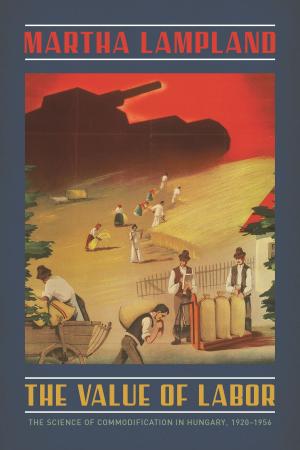Rule Breaking and Political Imagination
Nonfiction, Social & Cultural Studies, Political Science, Politics, History & Theory, Government| Author: | Kenneth A. Shepsle | ISBN: | 9780226473352 |
| Publisher: | University of Chicago Press | Publication: | September 1, 2017 |
| Imprint: | University of Chicago Press | Language: | English |
| Author: | Kenneth A. Shepsle |
| ISBN: | 9780226473352 |
| Publisher: | University of Chicago Press |
| Publication: | September 1, 2017 |
| Imprint: | University of Chicago Press |
| Language: | English |
“Imagination may be thought of as a ‘work-around.’ It is a resourceful tactic to ‘undo’ a rule by creating a path around it without necessarily defying it. . . . Transgression, on the other hand, is rule breaking. There is no pretense of reinterpretation; it is defiance pure and simple. Whether imagination or disobedience is the source, constraints need not constrain, ties need not bind.”
So writes Kenneth A. Shepsle in his introduction to Rule Breaking and Political Imagination. Institutions are thought to channel the choices of individual actors. But what about when they do not? Throughout history, leaders and politicians have used imagination and transgression to break with constraints upon their agency. Shepsle ranges from ancient Rome to the United States Senate, and from Lyndon B. Johnson to the British House of Commons. He also explores rule breaking in less formal contexts, such as vigilantism in the Old West and the CIA’s actions in the wake of 9/11. Entertaining and thought-provoking, Rule Breaking and Political Imagination will prompt a reassessment of the nature of institutions and remind us of the critical role of political mavericks.
“Imagination may be thought of as a ‘work-around.’ It is a resourceful tactic to ‘undo’ a rule by creating a path around it without necessarily defying it. . . . Transgression, on the other hand, is rule breaking. There is no pretense of reinterpretation; it is defiance pure and simple. Whether imagination or disobedience is the source, constraints need not constrain, ties need not bind.”
So writes Kenneth A. Shepsle in his introduction to Rule Breaking and Political Imagination. Institutions are thought to channel the choices of individual actors. But what about when they do not? Throughout history, leaders and politicians have used imagination and transgression to break with constraints upon their agency. Shepsle ranges from ancient Rome to the United States Senate, and from Lyndon B. Johnson to the British House of Commons. He also explores rule breaking in less formal contexts, such as vigilantism in the Old West and the CIA’s actions in the wake of 9/11. Entertaining and thought-provoking, Rule Breaking and Political Imagination will prompt a reassessment of the nature of institutions and remind us of the critical role of political mavericks.















